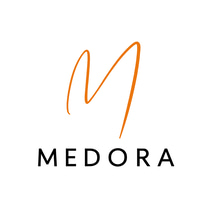Halal Certification in Indonesia: Key Insights and Processes
An overview of the key stakeholders, the certification process, and what businesses need to know to comply with these regulations.
Dr. Manish Shrivastava
11/7/20244 min read


Indonesia, as the largest Muslim-majority country in the world, has established rigorous regulations for halal certification. The Halal Product Assurance Law No. 33 of 2014 mandates that all products marketed within Indonesia must be halal certified. This regulation extends to a wide range of commodities and services, including consumer goods, pharmaceuticals, cosmetics, chemicals, biological products, genetically modified items, and food and beverages. Here's an overview of the key stakeholders, the certification process, and what businesses need to know to comply with these regulations.
Key Stakeholders in the Halal Certification Process
1. The Halal Product Assurance Organizing Body (BPJPH):
- The BPJPH is responsible for implementing Halal Product Assurance in Indonesia.
- It issues the Halal Certificate necessary for products to be marketed as halal.
- Detailed information about obtaining certification can be found on the official portal (https://ptsp.halal.go.id/) and specific guidance on obtaining the necessary permits is available at [link](http://bit.ly/caramendapatkanSTTD).
2. Indonesian Ulama Council (MUI):
- The MUI plays a crucial role in determining the halal status of products by issuing a Fatwa (Islamic legal opinion) on the product's compliance with halal standards.
3. LPPOM MUI:
- The LPPOM MUI, as the Halal Inspection Body, is responsible for conducting thorough examinations and audits of products to ensure their compliance with halal requirements. It is one of the recognized institutions that carry out these audits.
Criteria for Halal Product Assurance System (HPAS)
To obtain halal certification, companies must comply with the standards set by the BPJPH. The Halal Product Assurance System (HPAS) outlines the following five criteria that must be met:
1. Materials: All materials used in the product must be halal and free from any substances that are prohibited in Islam.
2. Production Process: The production process must prevent contamination with non-halal substances at all stages.
3. Storage, Handling, and Distribution: The product must be stored, handled, and distributed in a manner that maintains its halal integrity.
4. Packaging: The packaging must not contain or be contaminated by non-halal substances.
5. Labeling: Clear and accurate labeling must indicate the product’s halal status.
Duration of the Halal Product Audit Process
The timeline for completing the halal certification process has been standardized by the government through Government Regulation (PP) Number 39 of 2014. The key points to note include:
- Domestic Products: The halal audit must be completed within 15 days of the BPJPH issuing the LPH determination, with a possible extension of up to 10 days, bringing the maximum duration to 25 days.
- International Products: The initial audit period is 15 days, with an extension of up to 15 days, resulting in a maximum audit duration of 30 days.
In practice, the current average time to complete an audit at LPPOM MUI is around 18 working days—17 days for domestic products and 21 days for international products. This is a significant improvement compared to 2022, where the audit duration was 28 days for domestic and 29 days for international products. Despite this progress, the industry must remain vigilant to stay within the time limits set by the government.
Key Takeaways for Businesses
1. Timely Compliance: Understanding and adhering to the set timelines for halal certification is crucial for avoiding delays in bringing products to market.
2. Stakeholder Coordination: Engage with BPJPH, MUI, and LPPOM MUI early in the process to ensure a smooth certification process.
3. Ongoing Monitoring: Stay informed about changes in regulations and average processing times to plan your product launches effectively.
In the context of pharmaceuticals, halal certification ensures that the products comply with Islamic dietary laws, which include the prohibition of certain ingredients and adherence to specific manufacturing processes. Categories within the pharmaceutical industry that typically come under halal certification include:
1. Medicines and Drugs:
- Prescription Drugs: These are medications prescribed by a healthcare professional that must be halal-certified if intended for use by Muslim patients.
- Over-the-Counter (OTC) Drugs: Non-prescription medicines, such as pain relievers, cold and flu medications, and digestive aids, also require halal certification if they are to be marketed as halal.
2. Vitamins and Supplements:
- Nutritional Supplements: Products like vitamins, minerals, and herbal supplements that are consumed orally must meet halal requirements, especially if they contain gelatin or other animal-derived ingredients.
- Probiotics and Enzymes: These supplements, often used for digestive health, must be sourced and processed in compliance with halal guidelines.
3. Biologics and Biosimilars:
- Vaccines: Halal certification is important for vaccines to ensure that they do not contain prohibited substances, such as pork-derived gelatin.
- Insulin and Other Injectables: These must be free from non-halal ingredients and manufactured according to halal standards.
4. Traditional and Herbal Medicines:
- Herbal Remedies: Many traditional medicines, particularly those containing animal products, must be scrutinized for halal compliance.
- Ayurvedic and Chinese Medicine: If these are being marketed as halal, they need to be certified, ensuring all ingredients and processes align with halal standards.
5. Topical Medications:
- Creams and Ointments: These must be free from non-halal ingredients, especially if they contain animal-derived components.
- Gels and Lotions: Similar to creams, any topical application products must be halal-certified.
6. Cosmeceuticals:
- Halal-Certified Skincare Products: Products like creams, lotions, and serums that are used for skin health and beauty often require halal certification if they contain ingredients like collagen or glycerin.
- Oral Care Products: Toothpaste and mouthwash that may be ingested must also adhere to halal standards.
7. Vaccines and Injectable Drugs:
- Injectables: These must be free from non-halal ingredients and must be manufactured in a way that complies with halal practices.
8. Capsules and Gelatin Products:
- Gelatin Capsules: Capsules made from gelatin must be derived from halal sources (e.g., halal-certified bovine or fish gelatin).
- Softgels and Chewable Tablets: Any gelatin used in these formulations must also be halal.
Halal pharmaceutical certification ensures that the ingredients, processing, and handling of the products comply with Islamic dietary laws, making them permissible for consumption or use by Muslims.
Connect
Your partner in growth, market expansion, and digital execution across industries.
shri@medora.biz
+62-822-10-20-7000
© 2025. All rights reserved.
